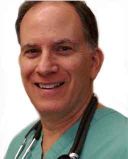Health
Who Is That Masked Man (Or Woman)?
Mask wearing is growing in popularity worldwide…should you be wearing one?
Posted July 18, 2016
My family and I are spending this summer in Asia. For me, traveling to a dozen countries and wandering cities whose populations dwarf New York and Los Angeles in size, and meeting with healthcare leaders across this region in which two-thirds of all human beings live, is an amazing learning experience. Although each culture is clearly unique, some commonalities surface, and to a physician, one of the most intriguing is the large number of people who wear surgical masks as part of their daily routine. From Beijing to Taipei to Bangkok to Tokyo, men and women, young and old, don disposable surgical masks of all shapes and styles. Everywhere you look (streets, offices, restaurants, subways), you see masked pedestrians, drivers, laborers, professionals, mothers, even children.
And so I have repeatedly asked my different hosts in different cities and different countries to explain the use of these face-hiding accessories. Ultimately, the majority of responses have boiled down to one of three rationales:
1. Masks are worn to protect the wearer from air pollution.
2. Masks are worn to protect an ill wearer from infecting others.
3. Masks are worn to protect a healthy wearer from becoming infected by others.
The argument for pollution protection instantly resonates with anyone who has traveled through Asia’s enormous mega-cities, as I was earlier today when sitting in a taxi as we passed through the heart of Beijing, China, a city of well over 30 million people. A city where you can’t fully or clearly see the buildings two blocks ahead of you, or the top floors of the twenty story building immediately across the street. Truly, to stare across Tienanmen Square at the massive government buildings is like looking through a wall of evenly spread white smoke. Not hard to imagine that folks would want to protect their soft, pink lungs from all of that crud, particularly people suffering from asthma, COPD, or other breathing ailments.
But do masks offer such protection against the scourge of polluted air?
Perhaps not surprisingly, Beijing served as the site of a clinical trial performed to answer this very question. But this study targeted people who suffered not from lung disorders, but from heart conditions. That’s because routine, traffic-produced pollution has been shown to be problematic for those suffering from coronary artery disease. And the study’s findings? That wearing a mask while walking through the streets of Beijing made heart patients feel better than strolling mask-free (that is, they had less symptoms). But the benefits were more than simply feeling better while walking through the man-made fog. Heart patients also had more stable EKG tracings (electrical patterns from the heart, which when less stable represent too little blood flow to the heart muscle) and better blood pressure.
Given such evidence in this and other studies which have demonstrated the benefits of mask-wearing by heart disease patients, it seems likely that masks would just as well benefit those suffering from lung conditions. That said, there is little scientific evidence to date that this is true. Not because masks don’t improve the health of lung disease patients; just that there have been no large, long-term studies.
And what about patients who don’t suffer from heart or lung conditions? Again, there is no strong scientific evidence of protection against pollution’s effects in healthy people because no major, well designed studies have been performed. That said, professionals who commonly wear disposable masks in Asia are the traffic cops. Again, this seems intuitive, given that for hours each day, traffic police are standing at ground zero in terms of polluted air.
The case for wearing a mask to prevent infecting others if you are sick is much stronger. Well, to be fair, it is much stronger if you have the flu or the common cold, but much less clear for certain other dangerous viral infections (such as MERS and H1N1). And it is really only much stronger when a sick person visits the doctor or nurse. That is, healthcare workers seem to receive some meaningful protection from infectious cold and flu viruses if their ill patients wear masks, and if the healthcare workers, too, don masks. And like nurses and doctors who find themselves in close quarters with infectious patients, healthy family members of those suffering from the common cold or flu likewise appear to benefit from mask use, especially if both the ill family member and all those in close contact with the infected loved one wear protection.
Then what about wearing a mask in public to prevent becoming infected from passers-by who happen to be sick with a common cold or flu bug? There’s no solid evidence that donning a mask will benefit you in this scenario. Unlike the physician’s office or the confines of your home where an ill person’s infectious particles are much more likely to be inhaled or touched, the chances of becoming infected out of doors by a passer-by are significantly lower. Still, having recently shared long elevator rides packed like sardines in buildings throughout Asia, it doesn’t seem unreasonable to be cautious in certain “public” settings which, in reality, are quite small and have limited air circulation.
Finally, it is critical to remind you that the most powerful means of avoiding an infection is simply regularly washing your hands with plain soap and water several times each day, avoid constantly touching your face (mouth, nose, eyes), avoid the guy who’s coughing at work, and stay home if you’re sick.
So what the heck does this all mean in the end? Well, if you suffer from heart or lung disease, and if you live in or are planning to travel to a known high-pollution city, the evidence suggests that wearing a mask while visiting all of the tourist attractions make sense. And if you are sick with the cold or flu, wearing a mask and having those in direct contact with you (family members, healthcare workers) also wear masks, likely protects them from getting your illness. And if you are caring for a sick person, both of you should wear a mask. But if you are healthy and out on the street? Probably not.
Unless you think it makes you look cool.




